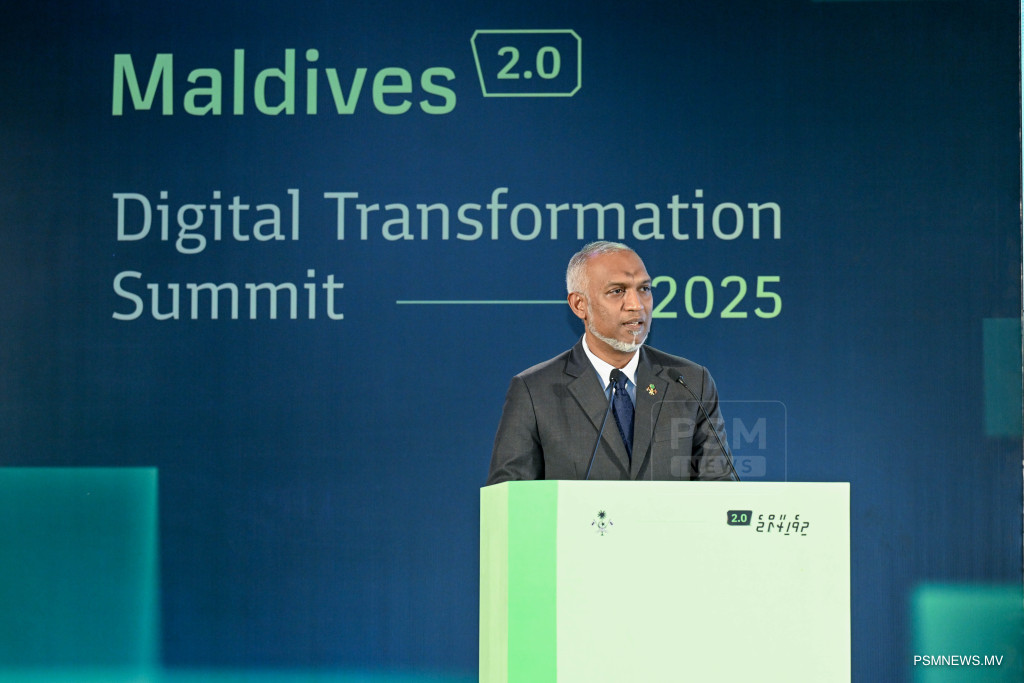
The Digital Transformation Council has been created to facilitate the country’s digitalisation efforts, with nine members appointed to the Council.
President Muizzu established the Council on the advice of the Cabinet to implement the government’s roadmap for the Maldives 2.0: Digital-First Nation vision. The Council will facilitate, advise and oversee the digitalisation of the Maldives and will be chaired by the President himself.
In addition to the President, the Council will comprise the following members:
1. Minister of Homeland Security and Technology, Ali Ihusaan
2. Minister of Finance and Planning, Moosa Zameer
3. Minister of Education, Dr Ismail Shafeeu
4. Minister of Health, Abdulla Nazim Ibrahim
5. Minister of Cities, Local Government and Public Works, Adam Shareef Umar
6. Chief of Staff, President’s Office, Abdulla Fayaz
7. Minister of State for Homeland Security and Technology, Dr Mohamed Kinaanath
8. Digital Transformation Strategist, President’s Office, Siyah Khaleel
9. Managing Director, TradeNet Maldives Corporation Limited, Saeeda Umar
Maldives 2.0 is a programme launched by President Muizzu in May this year, designed to bring about revolutionary and reform-driven changes to the digital sector. The initiative aims to create a digital environment that streamlines government operations, enhances transparency, and accelerates agency work. The programme will give priority to bringing about a revolutionary change in the existing system by reducing opportunities for corruption, while providing fast, secure, and user-friendly services. The reform aims to replace long and inefficient physical and digital queues with just a few clicks, creating a more integrated experience for citizens across all islands.
The project will also address delays in service delivery, ensure timely results, and establish a transparent and efficient service delivery system by eliminating the uncertainty in accessing government services.
The government stated the project not only outlines strategies for digital transformation but also promises revolutionary changes in the administration of services and institutions across the state.
